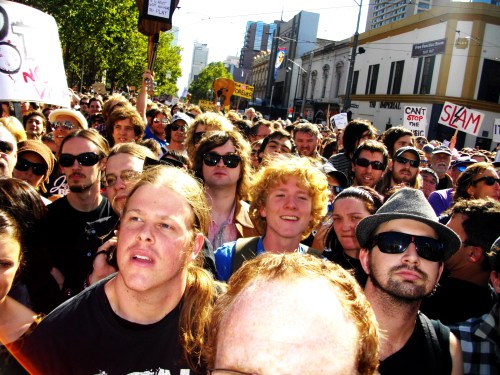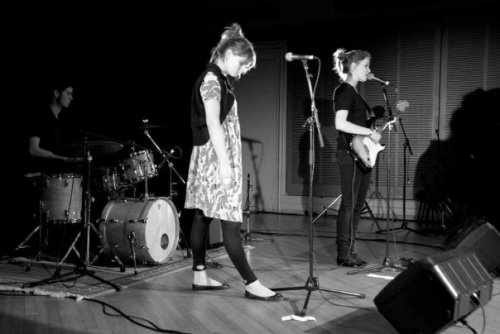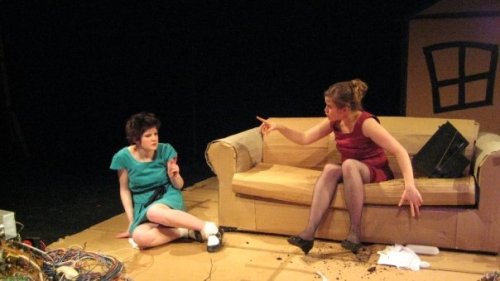Yes friends, I’m back. Three quarters of a year later, prompted by the Melbourne Fringe and a reference to this blog on this one. Ready to live up to the blog’s tagline and review, report and otherwise write on arts-related things (with a local focus). One thing that was stopping me from writing stuff here was the thought of having to write thousands of words on things when I feel like I don’t have that much to say, or it would take too much to work out how to say it. Deciding it’s better to do a little something than nothing at all (which is disputable), I have resolved to make a healthy number of little posts. They’ll probably average 200 words or so, rather than the 2000 I had previously, and will begin with the shows I’ve been seeing in the Fringe Festival. Don’t expect deep and full reviews, rather little thoughts and snippets. I may focus on one particular detail for the 200 words. Well that’s the plan anyway. I could very well end up being back to 2000 word posts before the Fringe is over. So without further ado, the first of these…can we call them reviews?…
DOGMEAT
I think the main reason I enjoyed this show is because it was performed outside. A number of intercut and interlinked storylines set, it seemed to me, in a kind of post-apocalyptic world terrorised by wild dogs and people snatchers. But then again someone I saw it with thought it was actually about dogs, and the ‘people snatchers’ were dog catchers…
In a set made of the pre-existing La Mama courtyard with laundry added, the three actors take a number of different roles between them.
Sitting very much outdoors in the new courtyard, the audience was on benches sheltered by a tarp (the show goes on rain hail or shine, though it was quite a nice night when I was there). I said to someone afterwards “I don’t think I would have liked that play nearly as much if it had been inside”. Somehow I think a lot of the ‘character work’ was made to seem a little less self-indulgent as we’re still connected to the outside world merely by virtue of not being separated off by walls and a roof.
It was a robust piece and had a real sense of the communal storytelling in which theatre has its origins. Of course all theatre was originally outdoors, and mostly all in the day as well. It seems strange now that the norm is inside at night. Of course the advent of electric lighting made this feasible. After seeing this piece outdoors and really enjoyed the different feel it gave to it, I would be very interested to see a play outside in the day time. You get street theatre, but a full length play is rare. The seeming mystery and intimacy of night and the indoors is attractive, with its apparent potential for an experience separate to and beyond the everyday. But perhaps when the experience feels part of the rest of life and the world it can bring something even greater.
SEE THIS IF: You enjoy not realising three characters are played by the same actor til halfway through a play.
DON’T SEE THIS IF: You stop reading at the mention of two mates fingering a dead dog. Though I suppose you have to stop reading anyway since it’s the end of the review.
Dogmeat. Written by Tobias Manderson-Galvin. Directed by Jessica Tuckwell. Produced by Glynn Roberts. Matt Furlani, Conor Gallacher, George Banders. Part of the Melbourne Fringe Festival. La Mama Theatre, 205 Faraday Street Carlton. 10pm. Until October 10th. Tickets through Melbourne Fringe.









